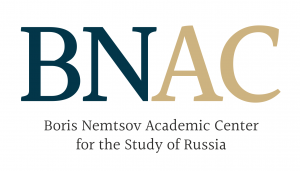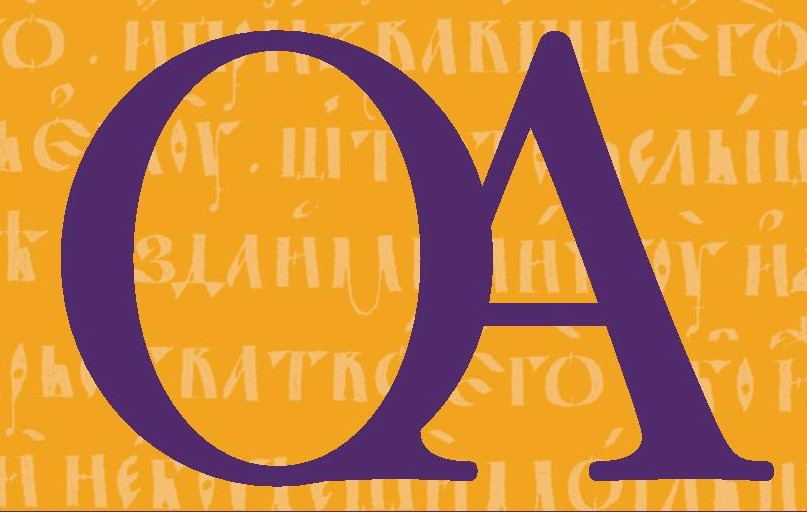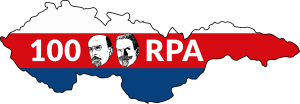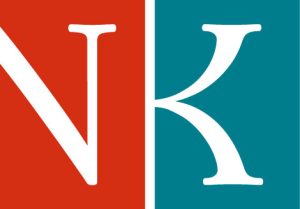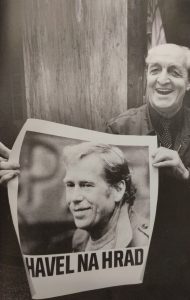
Ústav východoevropských studií si dovoluje pozvat všechny zájmece na intenzivní třítýdenní kurz The Jewish Community in the Post-Communist Lands of Central, Eastern, and Southeastern Europe, který na půdě FF UK povede profesorka Rebekah Klein-Pejsova.
Zájemci o kurz nechť co nejdříve kontaktují ředitele ústavu, dr. Stanislava Tumise (stanislav.tumis@ff.cuni.cz).
SYLABUS:
The Jewish Community in the Post-Communist Lands of Central, Eastern, and Southeastern Europe
December 3-20, 2018, Time: TBA; location TBA, Prague, Charles University, Faculty of Arts
Professor Klein-Pejšová (PAY-shova), Email: rkleinpe@purdue.edu
This year marks the 30th anniversary of the Communist regimes in Central, Eastern, and Southeastern Europe. How have the changes affected Jews and Jewish communities in the region? How has the experience of the Holocaust, Communism, and Post-Communism shaped Jewish relations with the Jewish world, between Jews and non-Jews, and with the state? What has the re-emergence of European Jewry meant for the development of Jewish identities globally? This course explores these questions through three dominant frames: 1) the return to Europe and the “Jewish 1990s” (Zpět do Evropy!), Post-Communist Jewish identities, or when did you first learn that you are Jewish? and 3) Memory work. Students will come away with a deepened understanding of the ruptures and continuities that have shaped contemporary Jewish individual and collective identities, of memory processes, heritage, commemoration, and preservation, and the far-reaching implications of the political changes of 1989 in Central, Eastern, and Southeastern Europe. We will use primary and secondary literature, fiction, memoirs, film, and other media, and local sites in our exploration. Each course session will contain two parts: a 45 minute lecture and a 45 minute seminar. *Bonus: taught by a relic of the Jewish 1990s.
Rebekah Klein-Pejšová received her Ph.D. in History from Columbia University in 2007, and her M.A. from the Central European University in 1996. Her research focuses on transnational approaches to Modern Jewish and east central European History. Her first book, Mapping Jewish Loyalties in Interwar Slovakia (Indiana University Press, 2015), investigates Jewish political reorientation within the borders of a radically remapped post-World War One East Central Europe. Focusing on the contested territory of Slovakia, formerly the northern counties of prewar Hungary, she shows how Jews faced the challenge of recasting themselves as loyal citizens of Czechoslovakia and proving they had done so. The book traces how the interwar state saw and understood minority loyalty and underscores how loyalty preceded identity in the redrawn map of east central Europe.
Her current book project, with the working title Across the Iron Curtain, examines the efforts of Jews remaining inside Cold War era Hungary and Czechoslovakia to maintain contact with Jews outside of it and their implications for postwar Jewish/state relations. Professor Klein-Pejšová is also a contributing author to Europe on the Move: the Great War and the Refugees, 1914-1918 (under contract) with her chapter, “Between Refugees and the State: Hungarian Jews and Wartime Jewish Refugee Crisis in Austria-Hungary.”
Her work has been published in a number of leading journals, including the Association of Jewish Studies Review, Shofar, and Austrian History Yearbook. Her scholarship has been supported by the ACLS, FLAS, the Slovak Academy of Sciences, Columbia University’s East Central Europe Center and Harriman Institute, Center for Historical Social Sciences, Center for Israel and Jewish Studies, and Purdue’s Library Scholars Grant. Professor Klein-Pejšová course rotation includes the Global History Survey, Jews in the Modern World, Nationalism and Socialism in East Central Europe, History of Human Rights, Holocaust and Genocide, and Beyond Borders.
Assignments:
- 3x 500-word Reaction Logs due on Fridays, 60% of grade
- “Scavenger Hunt” midterm project due on Tuesday, 11 December; 20% of grade
- 500-word Memory Site project due on Tuesday, 18 December; 20% of grade
More information on the assignments to follow in class sessions.
Schedule of Classes
1) Monday 3rd December, 15:50-17:20, room 313: De-Fiddler-on-the-Roof-ization: Rejoining the living narrative
2) Wednesday, 5th December, 9:10-10:40, room 313: Return to Europe? Jewish community revival, Klezmer, and tourism
3) Wednesday, 5th December, 17:30-19:00, room 313: The Jewish 1990s v. Resurgent antisemitism
4) Thursday, 6th December, 17:30-19:00, room 313: Emigration: Who goes where?
5) Monday 10th December, 15:50-17:20, room 313: When did you first learn that you are Jewish?
6) Wednesday, 12th December, 9:10-10:40, room 313: Opening Pandora’s Box: Institutional and Individual Jewish identities
7) Wednesday, 12th December, 17:30-19:00, room 313: Living in the house of the dead
8) Thursday, 13th December, 17:30-19:00, room 313: Sites of Memory, Sites of Preservation
9) Monday 17th December, 15:50-17:20, room 313: Fragmented memory
10) Wednesday, 19th December, 9:10-10:40, room 313: Documentation work and the digital diaspora
11) Wednesday, 19th December, 17:30-19:00, room 313: Neighbors
12) Thursday, 20th December, 17:30-19:00, room 313: Assault on Holocaust History
Literature:
Auerbach, Karen. 2013. The House at Ujazdowskie 16: Jewish Families in Warsaw after the Holocaust. The Modern Jewish Experience. Bloomington: Indiana University Press.
Bartov, Omer. 2008. “Eastern Europe as the Site of Genocide.” The Journal of Modern History 80 (3): 557–93. https://doi.org/10.1086/589591.
Bergmann, Werner. 2008. “Anti‐Semitic Attitudes in Europe: A Comparative Perspective.” Journal of Social Issues 64 (2): 343–62. https://doi.org/10.1111/j.1540-4560.2008.00565.x.
Bottoni, Stefano. 2017. Long Awaited West: Eastern Europe since 1944. Bloomington, Indiana: Indiana University Press.
Braham, Randolph L., and András Kovács, eds. 2016. The Holocaust in Hungary: Seventy Years Later. Budapest ; New York: Central European University Jewish Studies Program : Central European University Press.
Dojc, Yuri, and Katya Krausova. 2011. Last Folio: Textures of Jewish Life in Slovakia. Bloomington, Ind: Indiana University Press.
Efron, John M., Steven Weitzman, and Matthias B. Lehmann. 2014. The Jews: A History. Second Edition. Boston: Pearson.
Elazar, Daniel J. 1998. “Israel, the Fall of Communism, and the Re-Emergence of European Jewry.” Judaism; New York 47 (4): 454–64. https://search.proquest.com/docview/200397078/abstract/48F4BE55E62E4842PQ/1.
Engel, David. 2009. “On Reconciling the Histories of Two Chosen PeoplesDavid EngelOn Reconciling the Histories of Two Chosen Peoples.” The American Historical Review 114 (4): 914–29. https://doi.org/10.1086/ahr.114.4.914.
GITELMAN, ZVI. 1998. “Native Land, Promised Land, Golden Land: Jewish Emigration from Russia and Ukraine.” Harvard Ukrainian Studies 22: 137–63. http://www.jstor.org/stable/41036735.
Gitelman, Zvi Y., Barry A. Kosmin, and András Kovács, eds. 2003. New Jewish Identities: Contemporary Europe and Beyond. Budapest ; New York: Central European University Press.
Gross, Jan Tomasz. 2002. Neighbors: The Destruction of the Jewish Community in Jedwabne, Poland. New York, N.Y: Penguin Books.
Gruber, Ruth Ellen. 2002. Virtually Jewish: Reinventing Jewish Culture in Europe. The S. Mark Taper Foundation Imprint in Jewish Studies. Berkeley: University of California Press.
Hamburger, Aaron. 2004. The View from Stalin’s Head: Stories. 1st ed. New York: Random House Trade Paperbacks.
Hayes, Peter, Jeffry M. Diefendorf, Dagmar Herzog, and Holocaust Educational Foundation, eds. 1991. Lessons and Legacies. Evanston, Ill: Northwestern University Press.
Heitlinger, Alena. 2006. In the Shadows of the Holocaust & Communism: Czech and Slovak Jews since 1945. New Brunswick: Transaction Publishers.
Himka, John-Paul. 2008. “Obstacles to the Integration of the Holocaust into Post-Communist East European Historical Narratives.” Canadian Slavonic Papers 50 (3–4): 359–72. https://doi.org/10.1080/00085006.2008.11092588.
“Home.” n.d. Jewish Heritage Europe. Accessed November 20, 2018. http://jewish-heritage-europe.eu/.
“Home | Centropa.Org.” n.d. Accessed November 20, 2018. http://www.centropa.org/.
Judt, Tony. 2005. “From The House of the Dead: On Modern European Memory,” October 6, 2005. https://www.nybooks.com/articles/2005/10/06/from-the-house-of-the-dead-on-modern-european-memo/.
Kertész, Imre, Zoltán Hafner, and Tim Wilkinson. 2013. Dossier K. Brooklyn: Melville House.
Marrus, Michael Robert. 2016. Lessons of the Holocaust. UTP Insights. Toronto: University of Toronto Press.
Müller, Jan-Werner. 2018. “Homo Orbánicus,” April 5, 2018. https://www.nybooks.com/articles/2018/04/05/homo-orbanicus-hungary/.
Pinto, Diana. 1999. “The Third Pillar? Toward a European Jewish Identity.” http://archive.jpr.org.uk/object-eur68.
———. 2006. “Are There Jewish Answers to Europe’s Questions?” European Judaism 39 (2): 47–57. https://doi.org/10.3167/001430006780586598.
“SLOVAK JEWISH HERITAGE – Slovakia Synagogues, Jewish Cemeteries, Jewish Museum Bratislava.” n.d. Accessed November 20, 2018. http://slovak-jewish-heritage.org/.
“The Great White Hope | by Avishai Margalit | The New York Review of Books.” n.d. Accessed November 20, 2018. https://www.nybooks.com/articles/1991/06/27/the-great-white-hope/.
Veidlinger, Jeffrey. 2013. In the Shadow of the Shtetl: Small-Town Jewish Life in Soviet Ukraine. Bloomington ; Indianapolis: Indiana University Press.
Wisenberg, Sandi L. 2002. Holocaust Girls: History, Memory, and Other Obsessions. U of Nebraska Press.
Židovské Komunitné Múzeum, and Maroš Borský. 2014. Sme tu!: [katalóg výstavy v Židovskom komunitnom múzeu, Bratislava, 23. máj – 12. október 2014] = We are here! : catalogue of the exhibition in the Jewish Community Museum, Bratislava in May 23 – October 12, 2014. Bratislava: Synagoga Bratislava.
